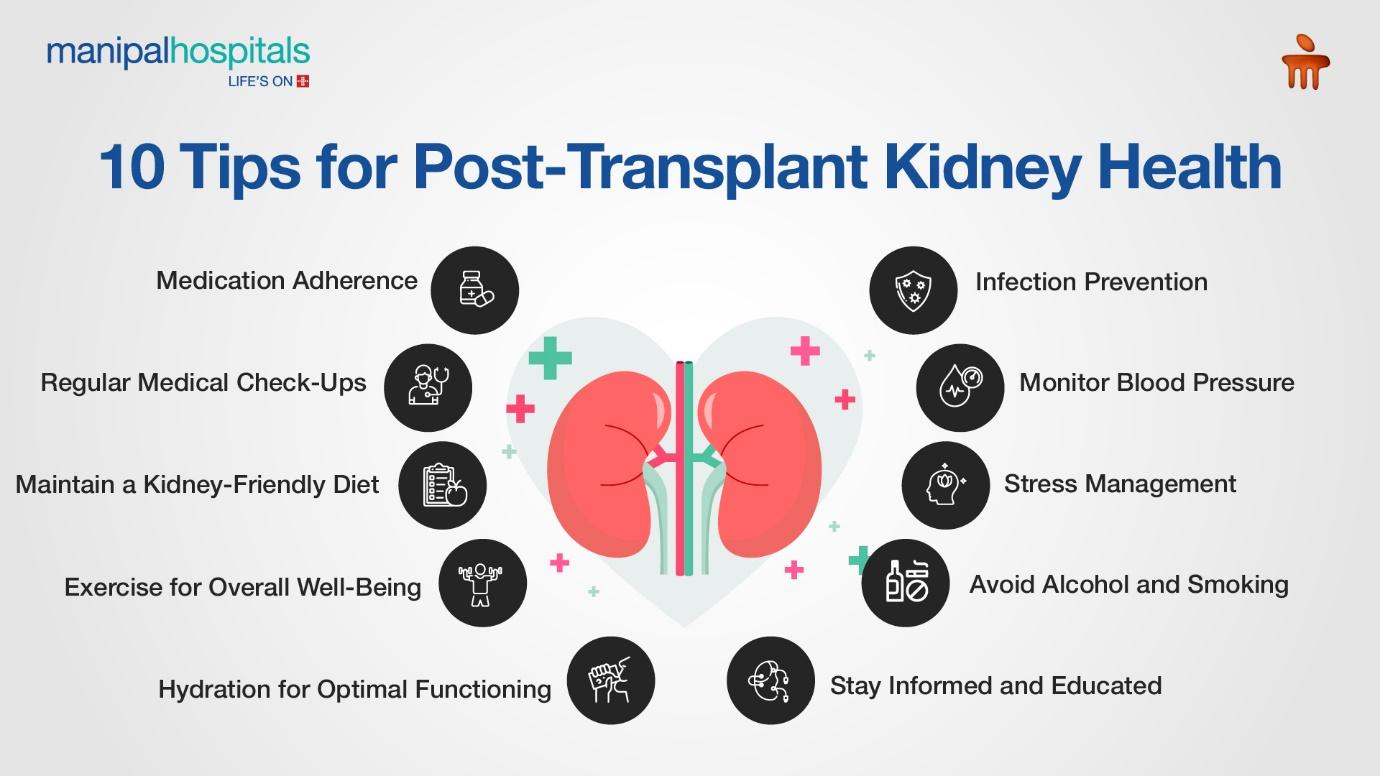
Kidney transplantation is one of the most significant surgical procedures, offering a renewed sense of strength, stamina, and energy. For many, it provides a second chance at life. However, the journey doesn’t end with a successful Kidney transplant surgery. Post-kidney transplant care is crucial to ensure the long-term health and function of the new organ. This blog will discuss the complexity of kidney transplantation, and the typical recovery timeline, and provide ten essential tips for maintaining your health after this life-changing procedure.
Synopsis
The Complexity of Kidney Transplants and Recovery
Kidney transplantation is a complex surgical procedure that involves replacing a diseased kidney with a healthy one from a deceased or living donor. The surgery itself is a significant undertaking, and recovery typically takes several months. During this time, your body will adjust to the new organ, and you'll be closely monitored by your transplant team to prevent rejection, a condition where the body attacks the new kidney.
Consult our urologist in Mangalore if you need a kidney transplant.
10 Tips to Maintain Your Kidney Health After Transplant
Here are 10 tips to maintain your kidney health post kidney transplant.

1. Medication Adherence
Following your prescribed anti-rejection medications precisely is the cornerstone of long-term kidney health. These medications help to suppress the immune system to prevent organ rejection. It’s vital to take these medications exactly as directed. Skipping doses or stopping them without your doctor's approval can lead to rejection and failure of the transplanted kidney.
2. Regular Medical Check-Ups
Regular follow-up appointments with your doctor post-kidney transplant are crucial. These visits allow your doctor to monitor your kidney function, check for signs of rejection, and adjust your medication regimen as needed. Blood tests and other diagnostic tools will be part of these routine check-ups.
3. Maintain a Kidney-Friendly Diet
A balanced, kidney-friendly diet is essential for overall health and to support the functioning of your new kidney. It is advised to consume fruits, green vegetables, lean proteins, and whole grains. Limit salt, sugar, and unhealthy fats to prevent complications like high blood pressure and diabetes. Your doctor or a registered dietitian can guide you in creating a meal plan that supports your overall health and kidney function.
4. Exercise for Overall Well-Being
Regular physical activity strengthens your cardiovascular system, promotes weight management, and improves overall well-being. Get your doctor's approval before starting an exercise program, and aim for moderate exercises like walking, swimming, or cycling for at least 30 minutes most days of the week.
5. Hydration for Optimal Functioning
Staying hydrated is crucial for optimal kidney function. Drink plenty of fluids throughout the day, unless your doctor advises otherwise. Water is the best choice, but low-sugar drinks can also contribute to your daily fluid intake.
6. Infection Prevention
Following good hygiene practices is vital to minimise your risk of infections after the kidney transplant procedure, which can pose a serious threat to your compromised immune system. Wash your hands frequently, avoid close contact with sick individuals, and maintain a clean living environment.
7. Monitor Blood Pressure
High blood pressure can damage your new kidney. Check with your doctor regularly on blood pressure and follow the instructions to keep it under control. This might include dietary changes, exercise, and possibly medication.
8. Stress Management
Chronic stress can impact your overall health, including your new kidney. Some of the healthy ways to manage stress are yoga, meditation and spending time in nature. If you struggle to manage stress on your own, talk to your doctor about additional support options.
9. Avoid Alcohol and Smoking
Alcohol can impact the effectiveness of your medication and harm your liver while smoking increases the risk of cardiovascular diseases and can negatively impact your kidney health. Avoid alcohol intake and seek help to quit smoking if necessary.
10. Stay Informed and Educated
Understanding your condition and the necessary care procedures is empowering. Keep yourself informed about the latest post-Kidney transplant care and stay proactive in managing your health. Life after a kidney transplant requires more attention and careful management than many might initially realize.
Consult our urology hospital in Mangalore if your loved one needs a kidney transplant and the best post kidney transplant care.
Conclusion
Life can be fulfilling and active, post-kidney transplant with the right care and precautions. Following the tips can help ensure your new kidney stays healthy and functions well for many years. Maintaining a healthy lifestyle, adhering to medical advice and staying vigilant about your health are key components of successful post kidney transplant care and ensuring maximum life after kidney transplant. This second chance at life is precious and with careful management, you can enjoy a vibrant and healthy future. You can also seek support from KMC Hospital, Mangalore to get guidance for any kidney-related issues.
FAQ's
Recovery varies from person to person. However, most patients can return to normal life within a few months if they follow the instructions properly. Frequent follow-up appointments are crucial, especially in the initial stages.
Yes, lifelong anti-rejection medications are essential to prevent your body from rejecting the transplanted kidney
Absolutely! Most transplant recipients experience a significant improvement in their quality of life and can resume most activities. However, maintaining healthy habits and regular check-ups with the transplant team is crucial.
Yes, travel is possible. However, discuss your travel plans with your doctor beforehand, especially if travelling to an area with a high risk of infection.





















 5 Min Read
5 Min Read















